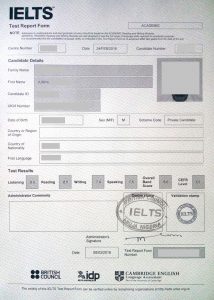Below you will find:
- the questions
- the audio recording
- the transcript
- the answers
to the listening for paraphrases exercise about Salt.
Try listening to the recording again and read the transcript at the same time. If you can speak out loud by following my voice, it will help your speaking skills and pronunciation 🙂
Questions
Write down the paraphrases in the recording for the following words:
- acquired
- familiar with
- thousands of years
- animal skins
- limited
- originates
- world
Recording
Transcript
Early human hunters obtained their salt from eating animal meat. As they turned to agriculture and their diet changed, they found that salt (maybe as sea water) gave vegetables the same salty flavour they were accustomed to with meat. Over many millennia, they learned how salt helped to preserve food, heal wounds and also cure hides. Nomadic bands would have carried salt with them and traded it with other bands for different goods. In Ancient Rome, salt was a scarce and expensive commodity, and soldiers were even partly paid in salt which is where the word “salary” comes from. The history of salt can be seen to have had a great impact on many aspects of life and culture across the globe.
Source: Adapted from http://www.saltassociation.co.uk/education/salt-history/
Answers
- acquired = obtained
- familiar with = accustomed to
- thousands of years = millennia
- animal skins = hides
- limited = scarce
- originates = comes from
- world = globe
Comments from Liz
I’m glad you found this lesson useful. The lesson had easy answers and also difficult answers, such as the word “hides”. I hope through these exercises, you will improve your ability to hear paraphrases and also develop your vocabulary. I will make more of these lessons for you 🙂









